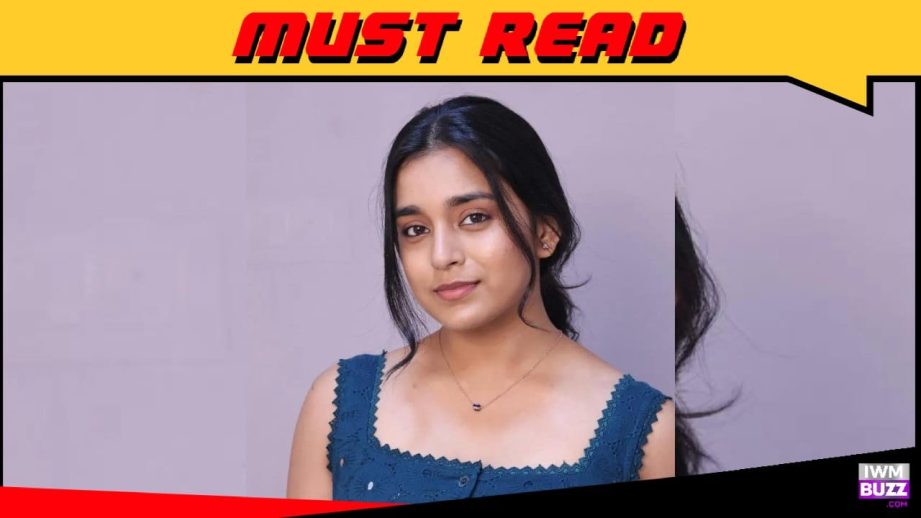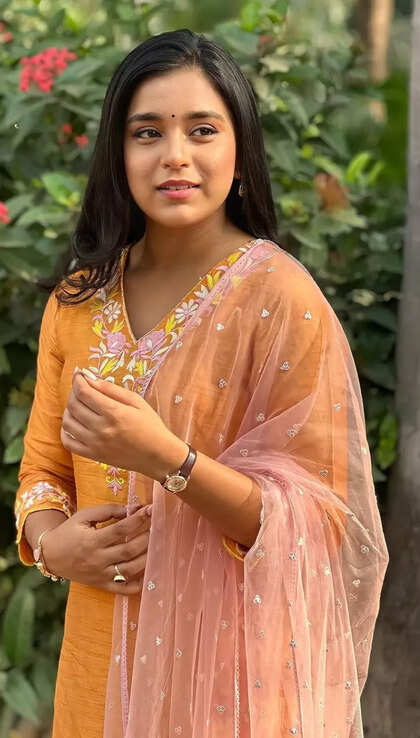
Sumbul Touqeer Khan, who is living the role of Anvita Divekar in Sony SAB and Rose Audio Visuals’ show Itti Si Khushi, feels that her show is a refreshing change in the TV industry, showing the struggles of flawed characters.
In an exclusive conversation with IWMBuzz.com, Sumbul talks about her role, its complexities and how Itti Si Khushi as a concept will inspire people.
The characters in Itti Si Khushi are not heroes or villains—they are just people trying to make the best of life with their flaws and strengths.
Read on.
Itti Si Khushi is a warm show, rich in emotions. What is the factor in the story plot that attracted you towards it?
What instantly connected me to it was its honesty. The story doesn’t try to show people as picture-perfect, because real life isn’t like that. Here, every character is flawed in their own way—they make mistakes, they struggle, and they learn. That was refreshing for me because usually in television, we see extremes—either someone is too good or completely negative. But in this story, the shades are very human. What also touched me is the way Anvita, despite being so young, becomes the thread that holds her entire family together. She is not a superwoman; she has her own battles, but she still tries to balance everyone. That sense of responsibility and resilience in her character really drew me in.
Is there any striking similarity between Sumbul and Anvita?
Yes, I do see myself in Anvita in many ways. She is someone who is constantly trying to strike a balance between family, friendships, and ambition. I think that’s very relatable for today’s generation—especially for women who are multitasking in every sphere of life. On a personal level, I connect with Anvita’s inner strength. There have been times in my own life when I had to be strong for my family. It was not easy, but I had to put on a brave face and keep moving forward. Anvita, too, has moments where she swallows her pain and chooses to be strong for others. That makes her very real for me, and playing her almost feels therapeutic at times, because I revisit my own emotions through her journey.
It’s easy to cry or shout in an emotional scene, but it is very difficult to portray suppressed emotions where the audience still understands what you are feeling without you saying it. That’s the beauty of Anvita.
The episodes have shown Anvita to be a person with controlled emotions, perhaps because she does not even have time to react. How has it been handling emotions in the character?
Handling Anvita’s emotions has been a very unique experience for me as an actor. She is not the kind of character who can afford to break down every time something goes wrong. Instead, she processes things internally and channels her energy into action. As an actor, that requires a lot of restraint because I can’t always show what I am feeling with big expressions or breakdown scenes. It’s about using silence, pauses, or even a look in the eyes to communicate what she’s going through. Sometimes, not saying anything speaks louder than words. I think this is what makes the role more challenging and exciting for me. It’s easy to cry or shout in an emotional scene, but it’s very difficult to portray suppressed emotions where the audience still understands what you are feeling without you saying it. That’s the beauty of Anvita.
When compared to the roles you have played as lead, which one is the closest to your heart? Why?
Every role I have played has been special because each one gave me a chance to explore something new and connect with the audience differently. But Anvita has become very close to my heart because she’s so grounded in reality. Anvita is someone you could actually meet in your neighbourhood. She’s the girl who is always smiling, always trying to keep everyone together, yet carries her own silent struggles. That makes her inspiring for me, because I feel a lot of people, especially women, will see themselves in her. This realism, and the way the writers have layered her journey, makes me feel very connected to her. I think she’s teaching me the virtues of patience, balance, and resilience in ways that will stay with me even after the show.

How do you gel with your onscreen siblings, Rajat and Varunji, on the set?
Honestly, shooting with Rajat and Varunji has been such a blessing. We instantly developed a comfort level which makes our chemistry onscreen look very natural. We laugh, we tease each other, and sometimes it really feels like we are a family. Varun Sir has so much experience, and he shares small tips without even making it feel like advice. Rajat brings a lot of freshness and energy to the set. I feel like the bond we’ve created offscreen—sharing meals, pulling each other’s legs, supporting each other in emotional scenes—really translates on screen.
What, according to you, is the USP of Itti Si Khushi?
The USP of Itti Si Khushi lies in its relatability. It’s not just a show; it’s a mirror to society. The characters are not heroes or villains—they are just people trying to make the best of life with their flaws and strengths. It’s also about the little joys of life, those itti si khushiyan that we often overlook in the race of ambitions and responsibilities. Sometimes, happiness is just in having your family sit together for a meal, or in the small victories of daily life. This show reminds us of that. I think audiences will connect with it because it celebrates imperfections and teaches us to find joy in the ordinary.
What are your expectations from this role?
My only expectation is that people connect with Anvita’s journey. If the audience can see themselves or someone they know in her character, then I feel I have done justice to the role. I also hope this role allows me to grow as an actor by exploring deeper emotions and more realistic storytelling.
